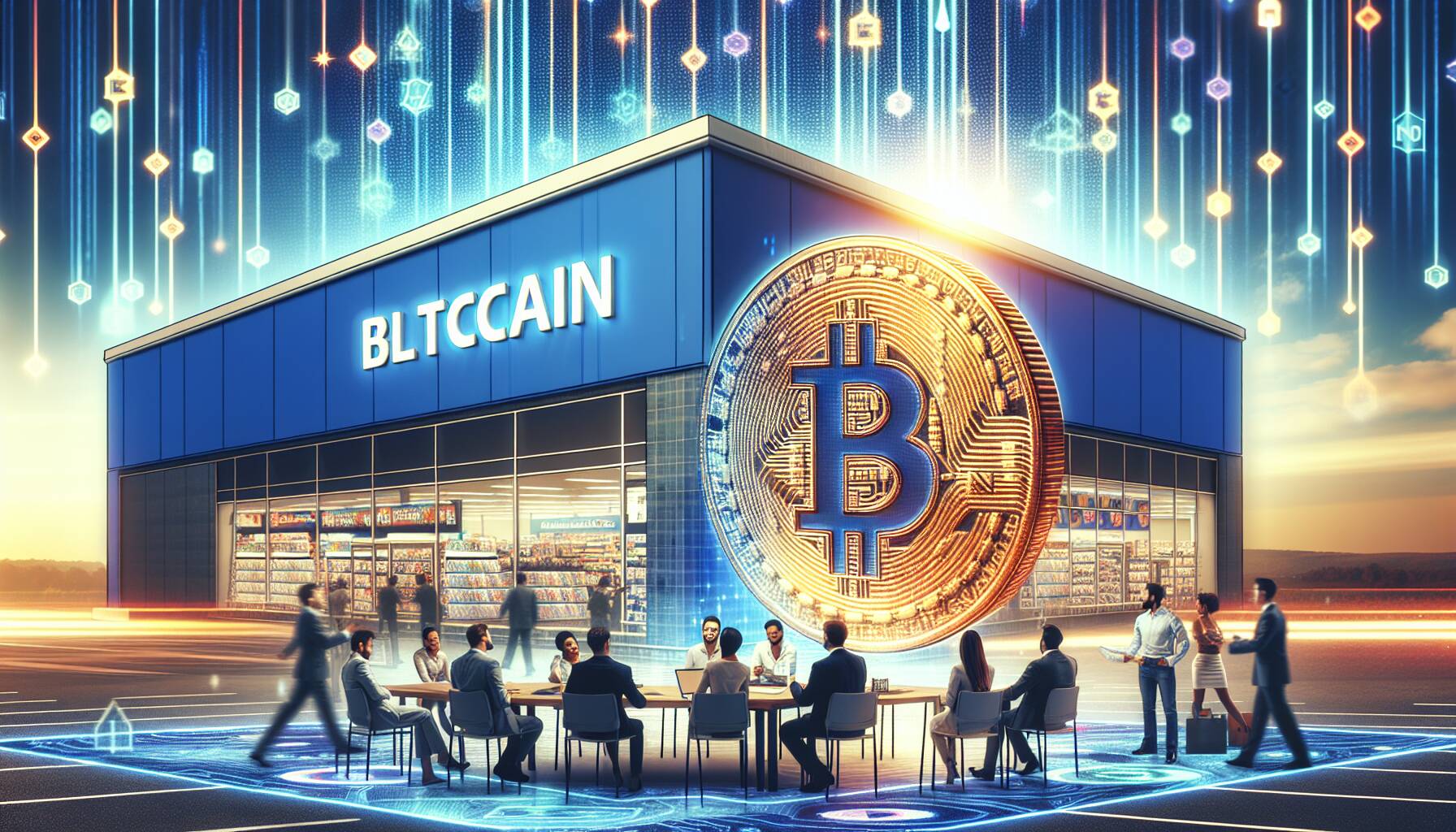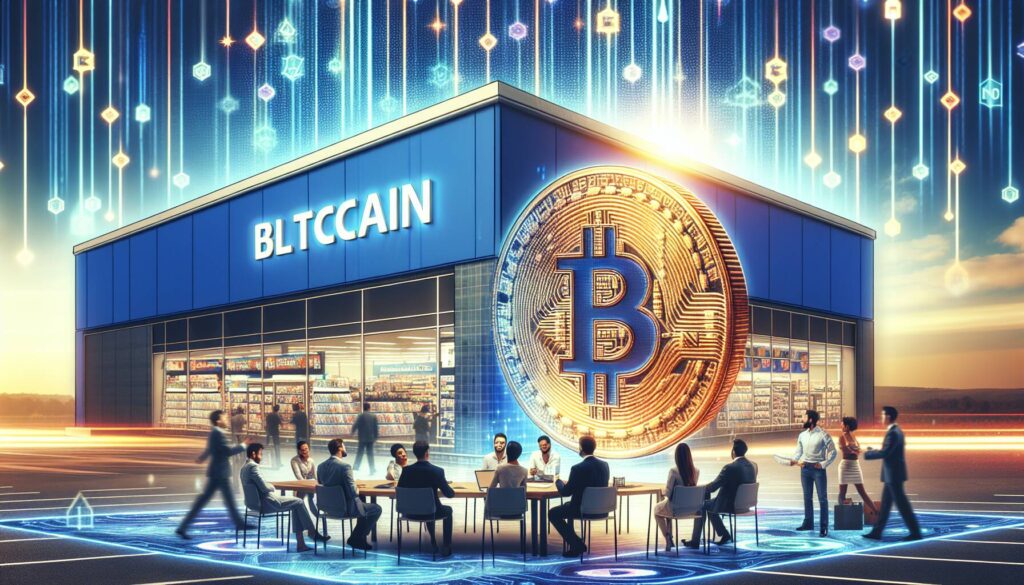In a bold move that could reshape the landscape of both gaming and cryptocurrency, Matt Cole, CEO of Strive Asset Management, has called upon GameStop to embrace bitcoin as a reserve asset. In a letter addressed to Ryan Cohen, GameStop’s Chairman and CEO, Cole emphasizes that the retail giant stands at a pivotal juncture, with a cash reserve nearing billion. He asserts, “We believe GameStop has an incredible opportunity to transform its financial future by becoming the premier bitcoin treasury company in the gaming sector.”
This suggestion comes amid recent discussions around GameStop’s interest in diversifying its investment strategies, including ventures into cryptocurrencies. According to Cole, Strive’s clients hold shares in GameStop through their exchange-traded funds (ETFs), underscoring a fiduciary responsibility to see the company thrive. While specific stock quantities remain undisclosed, Cole mentioned that GME stock is part of three different ETFs under their management.
“Cash is a negative real return; bitcoin is deemed an inflation hedge in terms of outpacing monetary debasement,”
he argues in his letter, highlighting the increasing appeal of bitcoin. In fact, as traditional methods of capital deployment face challenges, Cole positions bitcoin as a potential new benchmark for assessing future investments.
The call for GameStop to focus on bitcoin aligns with strategies employed by other prominent companies like MicroStrategy, which have successfully integrated bitcoin into their financial frameworks, leading to stock price increases and new avenues for capital investments. Cole’s letter wraps up with a commendation for GameStop’s recent strategic decisions, including the closure of unprofitable stores and a firm stance against diversity initiatives, indicating a desire for stringent operational focus.
As the cryptocurrency landscape continues to evolve, Matt Cole’s proposal invites a dialogue about the future of GameStop and its potential to emerge as a leader in the gaming sector by innovatively incorporating digital assets like bitcoin into its financial portfolio.

GameStop’s Financial Future: The Case for Bitcoin
Here are the key points from Matt Cole’s letter urging GameStop to adopt bitcoin as a reserve asset:
- Recommendation to Adopt Bitcoin: Cole urges GameStop to consider integrating bitcoin into its financial strategy as a reserve asset.
- Unique Opportunity: GameStop is positioned to redefine its market presence with almost billion in cash reserves.
- Strive’s Investment Interest: Strive Asset Management, which holds shares of GameStop, has a vested interest in the company’s success.
- Financial Transformation: Cole believes that becoming a premier bitcoin treasury company in the gaming sector could transform GameStop’s financial future.
- Positive Financial Moves: GameStop has managed to reduce operating losses and stabilize its balance sheet through effective financial management.
- Bitcoin as a Hedge: The letter claims that bitcoin is a better hedge against inflation compared to cash, which has a negative real return.
- Focus on Bitcoin: Cole recommends that GameStop steer clear of other cryptocurrencies while focusing on bitcoin.
- Industry Trends: Many companies, including MicroStrategy, have successfully adopted bitcoin, resulting in stock price increases and new capital opportunities.
- Support for Strategic Cuts: Cole applauds GameStop for closing unprofitable stores and rejecting diversity-focused initiatives.
“We believe GameStop has an incredible opportunity to transform its financial future by becoming the premier bitcoin treasury company in the gaming sector.” – Matt Cole
GameStop’s Bitcoin Leap: A Strategic Move or a Risky Gamble?
The recent letter from Matt Cole, CEO of Strive Asset Management, serves as a pivotal reminder of the evolving dynamics in corporate finance and investment strategies. Cole’s proposal for GameStop to embrace bitcoin as a reserve asset places the spotlight on the potential benefits of integrating cryptocurrency into corporate balance sheets. This recommendation aligns GameStop with a growing trend among companies like MicroStrategy and MARA Holdings that have successfully adopted similar strategies. These firms have experienced stock price surges and new funding opportunities by placing bitcoin at the core of their financial plans, suggesting that there could be a distinct competitive edge for GameStop should they take the plunge.
However, not all that glitters is gold. While Strive Asset Management frames this move as a necessary evolution in GameStop’s strategy, it also presents notable risks. The cryptocurrency market remains notoriously volatile, and relying predominantly on bitcoin could expose GameStop to significant financial fluctuations. This is a departure from their recent stabilization, where they have managed losses through interest income and prudent cash management. If the market were to shift dramatically, GameStop might find it challenging to maintain the same level of financial security they’ve worked hard to achieve.
Furthermore, this shift in strategy could benefit certain stakeholders, notably those invested in Strive’s ETFs. With Strive’s financial stake in GameStop, they have a vested interest in the company’s transformation, which could bolster shareholder confidence and drive stock performance in the short term. Conversely, more traditional investors or those with a low-risk appetite might find this pivot troubling, potentially leading to decreased interest in the stock as the focus shifts towards more speculative investments. Critics could easily argue that GameStop’s foray into the volatile world of cryptocurrency could alienate conservative investors who prefer stability over the uncertainty associated with digital currencies.
Moreover, while Cole’s letter commends GameStop for its decision to close unprofitable stores, it also raises eyebrows with its dismissive stance towards diversity, equity, and inclusion (DEI) programs. This controversial position may provoke backlash from a customer base increasingly focused on corporate responsibility. GameStop could risk its reputation in the gaming community, which often values inclusivity alongside innovation. Balancing the pursuit of a bold new strategy while maintaining a positive public image could prove an ongoing challenge.
In summary, GameStop’s potential pivot toward bitcoin, as advocated by Strive Asset Management, sets the stage for a fascinating intersection of traditional retail investment and modern financial innovation. While the possible rewards are enticing, the challenges posed by market volatility, investor sentiment, and reputational risks could shape the outcomes of this bold strategy. Stakeholders and interested parties will need to closely monitor how this situation develops as GameStop grapples with its identity in an ever-changing marketplace.















